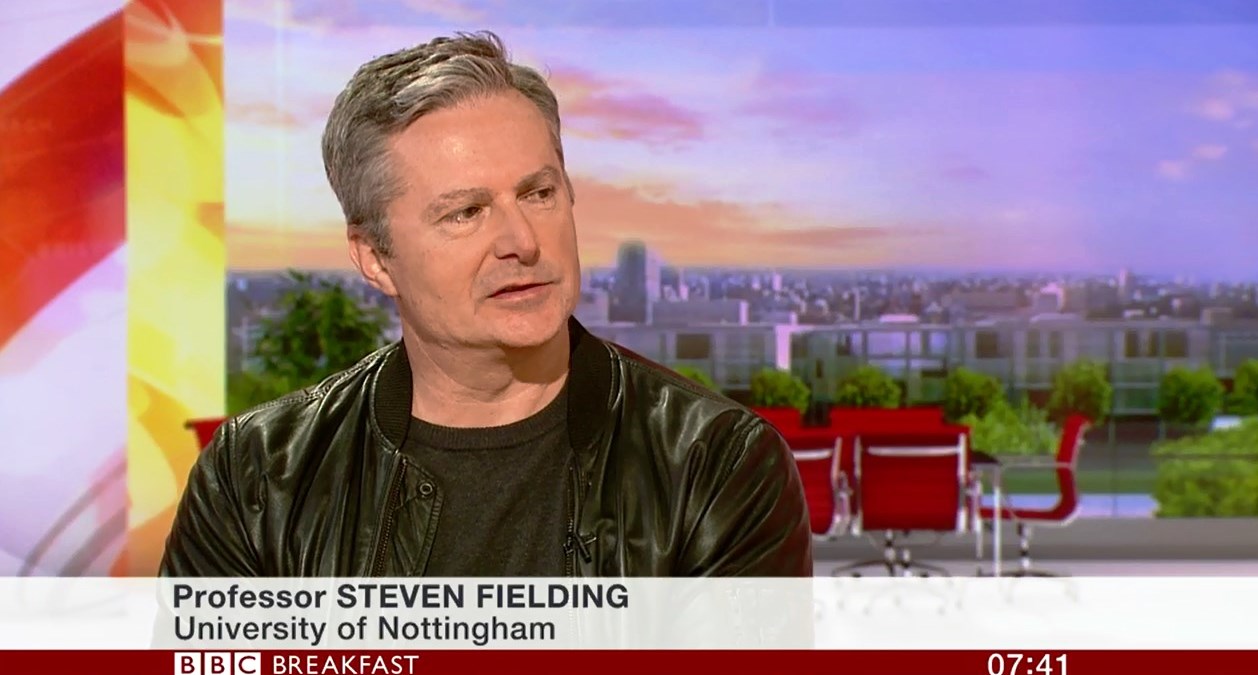
May 15, 2017, by Charlotte Anscombe
The truth is, voters crave a strong and stable leader
Professor Steven Fielding from the School of Politics and International Relations writes for The Conversation
As he made his journey from conventional politician to radical hero, Tony Benn became increasingly critical of how the Labour party did politics. Benn’s diary records Harold Wilson, who had just won a landslide victory in 1966, claiming that the public wanted him to be their “doctor who looked after the difficulties so that it could go on playing tennis”.
Benn saw this attitude as incompatible with a government that wanted to transform society. By the early 1980s he looked to another kind of leadership. He often cited the Chinese philosopher Lao Tzu, to whom is attributed the view that the best leader operates unnoticed and that when their work is done the people believe they did it by themselves.
Labour leader, Jeremy Corbyn, was closely associated with Benn and has presented himself as the kind of leader of whom he would have approved. According to supporters like Hillary Wainwright, another figure with a Bennite pedigree, Corbyn embodies a “collaborative, facilitating kind of leadership”. He is the very antithesis of the political “strong man”.
Those too young to have been Bennites but who claimed to have a firm finger on contemporary political trends also welcomed Corbyn’s unconventional leadership. The writers Owen Jones and Paul Mason in particular were inspired by anti-austerity groups like Occupy who trail-blazed very different ways of doing politics to the one seen at Westminster.
Believing the old party structures moribund, Corbyn supporters claimed Labour’s only hope of revival was to become a “social movement”. They saw campaign group Momentum, set up to support the Corbyn revolution, as the main means of achieving that end. Mason in particular believed Corbyn would turn Labour into “a mass, democratic and participatory opposition … rooted in the very communities where Labour is battling right wing populism, through community activism and grass roots engagement”. This would, Mason hoped, lead to “masses of people on the streets, resisting the elite’s attacks, and creating a new kind of power in communities and on the streets and in universities and schools”.
Echoing this aspiration, Corbyn recently evoked “the voices of protest and opposition, from the peasants’ revolt in the 14th century to the 1930s Jarrow and hunger marches to the million-strong demonstration against the Iraq war … movements that sprang from our streets and workplaces [which] have won the only advances ever made by working people”. His Labour government will, he claimed, “put the people back in power”.
Such thinking can be found in the work of radical academics influenced by the likes of Hannah Arendt and Jurgen Habermas, who promote new ways of democratic engagement. But even more conventional authorities have serious misgivings about strong leaders: Archie Brown recently wrote a book assailing, as the title has it, the myth of the strong leader.
Brown argued for the merits of collegial forms of government, but he was forced to concede that many people nonetheless crave a strong leader. That is certainly the case in this election campaign, with Theresa May set to achieve a landslide victory thanks to her promise of “strong and stable” government.
There has always been a strain in political thought that emphasised the necessity for leaders standing above ordinary life, as Plato has it in his Republic, benignly steering the ship of state on the people’s behalf. The need for such leaders was predicated on the belief that the people were incapable of governing themselves. They required, as Thomas Carlyle put it in the mid-19th century, “great men”. Carlyle was no democrat, being in so many ways a deeply prejudiced Victorian. But he nonetheless gestured to an inconvenient truth: many people often hanker for leaders who tell them what to do.
Carlyle’s “great man” was a glorified drill sergeant, a martial leader who imposed order on millions. His concept has been used to justify authoritarianism. But it helps us to understand why Britons have so often turned to figures promising to competently execute the job of government while they get on with their lives. By invoking “strong and stable” government, May is just one in a long line of such figures. It’s a line that includes Stanley Baldwin in the interwar period, Wilson, Margaret Thatcher and Tony Blair.
Such leaders do not always produce good government, and things might go terribly wrong for May. But they have appealed to enough voters to actually form governments, good or bad. That’s something Corbyn, the anti-strong man, is unlikely to do come June 8.
This article was originally published at The Conversation

Having the photo of just ONE party leader on our University home page, 3 weeks before a General Election, looks like the University is promoting one party, the Conservatives. Regardless of the moral question of balance, is this even legal?
I would add that it takes REAL strength to stand up to the richest and most powerful people in society and challenge them at every turn, as Jeremy Corbyn (Labour) and Caroline Lucas (Green Party) have been doing, with great success and without deviating, for many years. Theirs is the kind of strong, stable leadership that most university staff and students will be voting for, me included!
Update: I note that the image on the article here has now been updated to show our colleague Prof Fielding, as it should. I hope the home page will be similarly changed. Currently the Prime Minister’s image remains…
Much better! Our home page has also now been changed. Thanks for responding. – GG